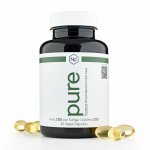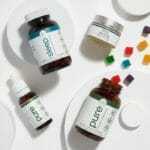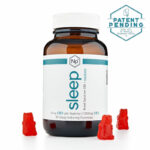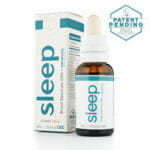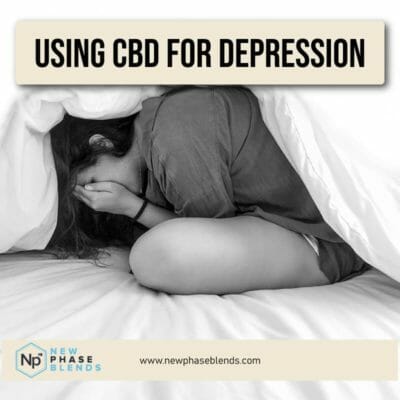Depression affects over 280 million people worldwide, leaving many searching for effective treatments beyond traditional medications. If you’re exploring whether CBD products for depression could offer relief, you’re not alone in wondering about this increasingly popular natural alternative. Recent research has begun shedding light on cannabidiol’s potential role in managing mental health challenges, though the complete picture remains complex and evolving.
This comprehensive guide examines the current scientific evidence surrounding CBD for depression, helping you understand what researchers have discovered, how CBD might work for mental health conditions, and what you need to know before considering it as part of your wellness approach. We’ll explore both the promising findings and important limitations, ensuring you have the balanced information needed to make informed decisions about your mental health journey.
As wellness experts who have followed CBD research developments closely, we’ve compiled the most current scientific evidence to provide you with accurate, practical insights about using CBD for depression and related mental challenges.
Understanding CBD and Its Potential for Mental Health
Cannabidiol represents one of over 100 compounds found in cannabis plants, but unlike THC, it doesn’t produce intoxicating effects. This non-psychoactive nature has made CBD an attractive option for people seeking natural approaches to mental health support without the mind-altering effects associated with marijuana.
The human body contains an endocannabinoid system that plays crucial roles in regulating mood, stress response, and overall emotional balance. CBD interacts with this system in ways that researchers believe may influence depression-related symptoms, though the mechanisms aren’t fully understood yet.
Recent studies have shown encouraging results for CBD’s potential in addressing various mental health challenges. A new study of 300 people with anxiety shows that the nonintoxicating compound, CBD, found in cannabis can quell anxiety better than THC-dominant products — and without the side-effects. While this research focused on anxiety rather than depression specifically, the overlap between these conditions makes such findings particularly relevant.
The relationship between depression and anxiety is well-established in medical literature, with many individuals experiencing both conditions simultaneously. This comorbidity suggests that treatments effective for one condition may offer benefits for the other, making CBD’s demonstrated anxiety-reducing properties potentially significant for depression management.
Current Research on CBD for Depression
The scientific landscape regarding CBD for depression shows both promise and limitations. There are limited scientific studies in humans showing that CBD is effective for depression. People should not replace their antidepressant medication with CBD without first discussing it with a doctor. This caution reflects the current state of research, where preliminary findings are encouraging but comprehensive human studies remain limited.
Research has revealed some intriguing mechanisms by which CBD might influence mood disorders. Research suggests that CB1 and CB2 receptors are associated with depression and bipolar disorder, and a single nucleotide polymorphism in the CB1 receptor has been observed in patients with treatment-resistant depression. Additionally, CBD functions as an agonist of the 5HT-1A receptor, which plays a significant role in serotonin signaling—the same neurotransmitter system targeted by many conventional antidepressants.
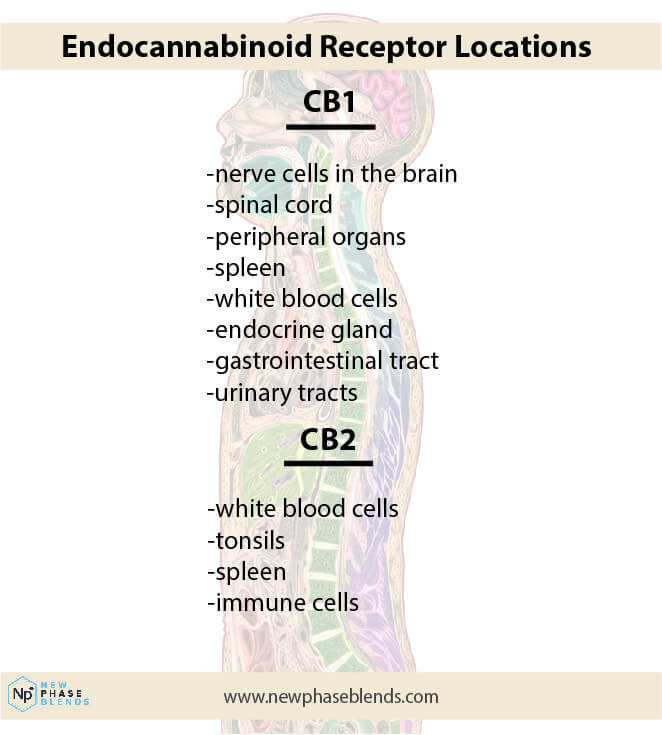
Preliminary studies have shown some promising results for CBD in mental health applications. Data on the benefits of CBD in reducing the severity of depressive symptoms and anxiety are limited but promising. Some studies show that CBD is useful in treating depression, anxiety, sleep disorders and even problematic cannabis use, as well as in reducing the positive symptoms of schizophrenia, with little to no side effects such as diarrhea, which decreased over time.
Type: Pure CBD Softgel Capsules (Vegan)
CBD: 40mg per Capsule
Features: Free Shipping, Money Back Guarantee
Ongoing research continues to explore CBD’s potential for various mental health conditions. An ongoing double-blind, randomized, placebo-controlled clinical trial (NCT03310593) is evaluating the effects of CBD (150–300 mg/day for 12 weeks) to reduce anxiety and depression in patients with bipolar disorder (estimated enrollment: 100 participants). Such rigorous clinical trials will provide more definitive answers about CBD’s effectiveness for depression.
How CBD May Work for Depression
Understanding how CBD might influence depression requires examining several biological pathways. The endocannabinoid system, which CBD affects, plays crucial roles in mood regulation, stress response, and emotional processing. When this system functions optimally, it helps maintain emotional balance and resilience against stress.
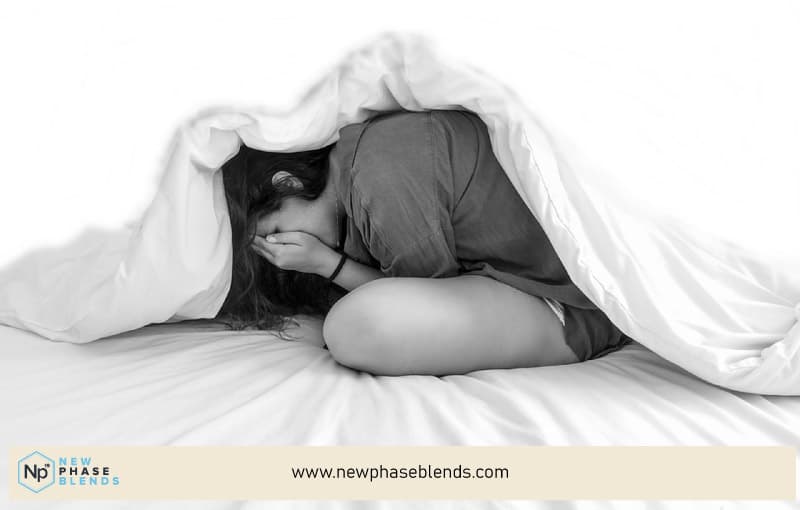
CBD’s interaction with serotonin receptors represents another potential mechanism for its antidepressant effects. Serotonin, often called the “feel-good” neurotransmitter, significantly influences mood, sleep, appetite, and overall well-being. By modulating serotonin receptor activity, CBD may help restore balance in brain chemistry associated with depression.
The compound also appears to influence neuroplasticity—the brain’s ability to form new neural connections and adapt to change. Depression often involves reduced neuroplasticity, particularly in areas of the brain responsible for emotional regulation and stress response. CBD’s potential to enhance neuroplasticity could contribute to improved mood and resilience over time.
Inflammation has emerged as a significant factor in depression, with chronic inflammatory states linked to increased depression risk and severity. Some research suggests CBD possesses anti-inflammatory properties that might help address this aspect of depression, though more research is needed to confirm this mechanism.
Dosage and Safety Considerations
Determining appropriate CBD dosage for depression remains challenging due to limited specific research and individual variation in response. The medical condition can influence the necessary dosage. For example, some people need high dosages to control epilepsy, whereas smaller dosages may be effective for other health conditions, such as anxiety. Weight also plays a role, as many clinical trials calculate doses per kilogram of body weight.
Current research suggests that effective dosages for mental health applications may range widely. Some studies have examined doses as low as 25-75 mg daily for anxiety-related conditions, while others have investigated higher doses of 150-300 mg daily for more severe psychiatric symptoms. Starting with lower doses and gradually increasing allows individuals to find their optimal therapeutic range while minimizing potential side effects.
Safety profiles for CBD appear generally favorable in most studies. CBD was as effective as amisulpride in improving psychotic symptoms and associated with marked tolerability and safety, when compared with amisulpride. However, CBD can interact with certain medications, particularly those processed by the liver’s cytochrome P450 enzyme system, which includes many common antidepressants.
Potential Benefits and Limitations
The potential benefits of CBD for depression extend beyond direct mood effects. Many people with depression also struggle with sleep disturbances, anxiety, and chronic stress—areas where CBD has shown more established benefits. By addressing these related symptoms, CBD might contribute to overall improvement in quality of life and mental well-being.
Sleep quality represents a particularly important factor in depression management. Poor sleep can worsen depression symptoms, while depression often leads to sleep disturbances, creating a challenging cycle. CBD’s documented effects on sleep regulation may help break this pattern, indirectly supporting depression recovery.
CBD for Sleep by New Phase Blends
Type: CBD Starter Kit Bundle
Includes: Tincture, Balm, and Gummies
Features: You create your own kit with your custom product choices
Type: CBD gummies for sleep
CBD: 45mg per gummy
Features: Free Shipping, Money Back Guarantee
Type: CBD Oil For Sleep
CBD: 66mg per serving
Features: Free shipping, money back guarantee
However, significant limitations exist in our current understanding. The majority of CBD research has focused on anxiety rather than depression specifically, making direct applications uncertain. Individual responses to CBD vary considerably, and what works for one person may not be effective for another. Additionally, the quality and consistency of CBD products available to consumers vary widely, making it difficult to ensure reliable dosing and effects.
Choosing Quality CBD Products
The CBD market’s rapid growth has led to a wide range of products with varying quality, potency, and purity. For those considering CBD for depression, selecting high-quality products becomes crucial for both safety and effectiveness. Third-party laboratory testing represents the gold standard for verifying product contents and identifying potential contaminants.
Full-spectrum CBD products contain additional cannabis compounds that may work synergistically with CBD, potentially enhancing therapeutic effects through what researchers call the “entourage effect.” However, these products may contain trace amounts of THC, which could be problematic for some individuals. CBD isolate products contain only pure CBD, eliminating concerns about other compounds but potentially reducing therapeutic efficacy.
Delivery methods significantly impact how CBD affects the body. Sublingual tinctures offer relatively quick absorption and precise dosing control, making them popular for mental health applications. Capsules provide consistent dosing but may take longer to show effects due to digestive processing. Topical products generally don’t affect systemic conditions like depression, focusing instead on localized applications.
Integrating CBD with Traditional Depression Treatment
CBD should not be viewed as a replacement for established depression treatments but rather as a potential complementary approach. The complexity of depression often requires comprehensive treatment strategies that may include therapy, lifestyle modifications, and sometimes pharmaceutical interventions.
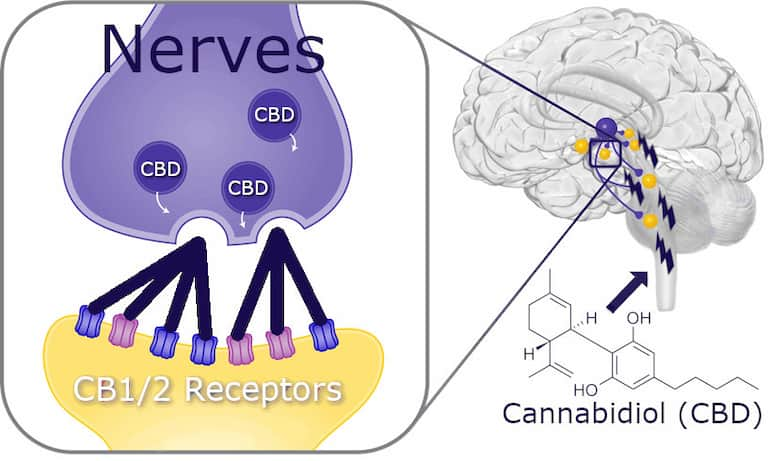
Before adding CBD to any depression treatment regimen, consulting with healthcare providers becomes essential. This is particularly important for individuals taking prescription medications, as CBD can alter how the body processes certain drugs. Healthcare providers can help assess potential interactions and monitor for any changes in symptoms or medication effectiveness.
Some healthcare providers have begun incorporating CBD into integrative treatment approaches, recognizing its potential benefits while maintaining appropriate caution. This collaborative approach allows for careful monitoring of both benefits and potential side effects while ensuring that proven treatments remain the foundation of care.
Making Informed Decisions About CBD for Depression
The decision to try CBD for depression should be based on careful consideration of current evidence, individual circumstances, and healthcare provider guidance. While research shows promise, the limited scope of human studies means that CBD’s effectiveness for depression isn’t fully established.
Starting with realistic expectations helps ensure appropriate evaluation of results. CBD may help with related symptoms like anxiety or sleep disturbances, which could indirectly benefit depression. However, it’s unlikely to provide complete relief from depression symptoms on its own, particularly for moderate to severe cases.
Monitoring and documenting your experience with CBD can provide valuable insights for both you and your healthcare provider. Keeping track of dosage, timing, effects, and any side effects helps determine whether CBD is providing meaningful benefits and guides adjustments to your approach.
The field of CBD research continues evolving rapidly, with new studies regularly adding to our understanding. Staying informed about emerging research while maintaining realistic expectations about current limitations will help guide your decisions about incorporating CBD into your mental health strategy.
Conclusion
CBD for depression represents an area of growing interest and research, with preliminary findings suggesting potential benefits for mental health challenges. While current evidence shows promise, particularly for related conditions like anxiety and sleep disturbances, comprehensive human studies specifically examining CBD’s effectiveness for depression remain limited.
The decision to explore CBD for depression should involve careful consideration of current research limitations, consultation with healthcare providers, and realistic expectations about potential outcomes. CBD may serve as a valuable component of a comprehensive approach to mental health, but it shouldn’t replace established treatments without professional guidance.
As research continues to emerge, our understanding of CBD’s role in depression treatment will undoubtedly evolve. For now, those considering CBD for depression should approach it as one potential tool among many in the complex journey of mental health management, always prioritizing safety and evidence-based decision-making.



